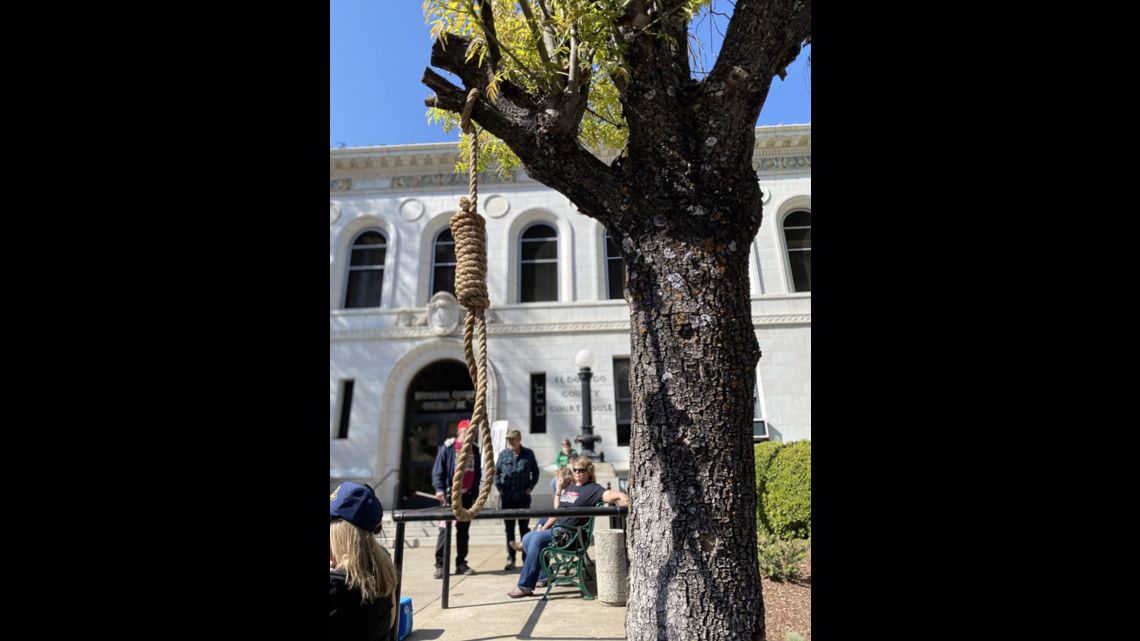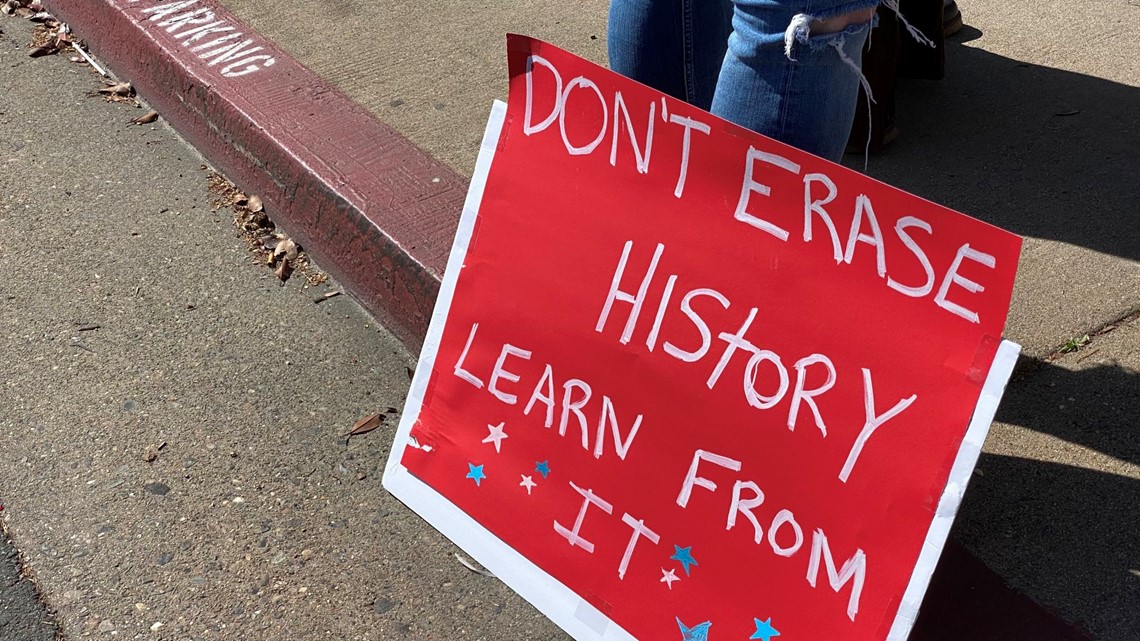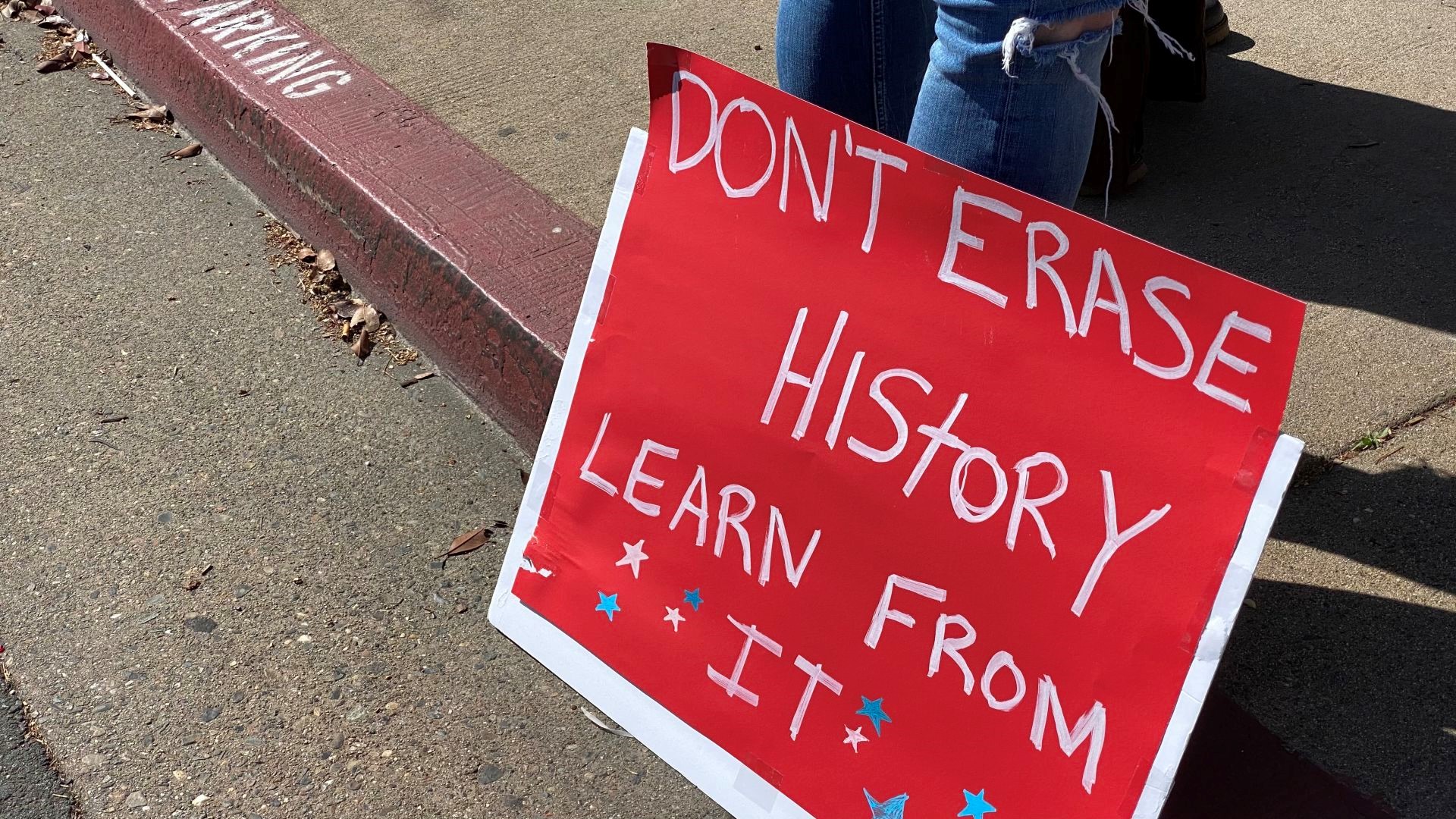PLACERVILLE, Calif. — Some call the noose a symbol of gold rush era Western justice, while others say the folded rope will forever have ties to the racist lynching Black people in America.
The contentious symbol has the small town of Placerville, pitting its past versus present after its city council’s 5-0 decision earlier this week to remove it from the city logo, brought residents up in arms.
The noose was placed on the city logo in the 1970s, according to a Placerville city councilman.
The historic California gold rush mining town was once one of the largest towns in the state. It became known as “Hangtown” for the numerous convicted gold thieves who were hanged there.


Today, the city’s historic main street has traces of the noose and nickname. A colorful mural paints “Hangtown” on a wall, people wear t-shirts with the name and there is even a doll depicting a noosed man hanging from the historic Hangman’s Tree.
"It's all history,” said Kim Mueller, who attended the rally. “It doesn't represent anything with race, it doesn't represent anything with hatred. It's just a history, it's just a history symbol. You know.”
“We’re here just to keep our history,” said Rebecca Gyorgy, one of the event organizers.
Gyorgy along with other grassroots organizers are now calling for the removal of all five city council members involved in the decision to remove the noose from the city logo. They have circulated a petition for their removal.
Meanwhile, members of El Dorado County’s Black Lives Matter group have been fighting for the symbol’s removal for at least a year.
“Regardless of the history of the noose here, in American culture, the noose symbolizes lynching, right,” said Michelle Greene of El Dorado’s Black Lives Matter group. “It symbolizes racism.”
She and other organizers plan to continue working to remove what they call racist symbols from town. They say they’ll begin lobbying city leaders to stop the use of “Hangtown.”
Continue the conversation with Giacomo on Facebook.





















